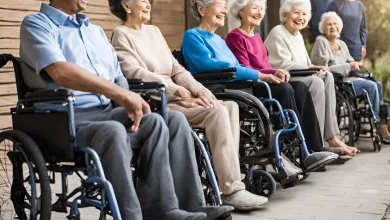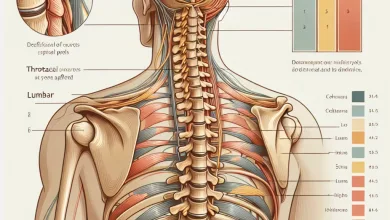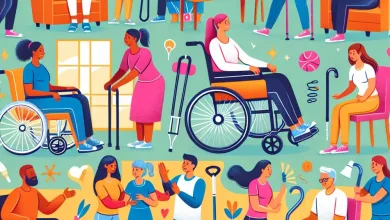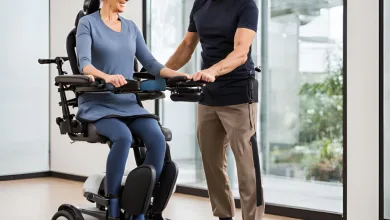Navigating the Path to Power Wheelchair Financial Aid: Your Complete Guide
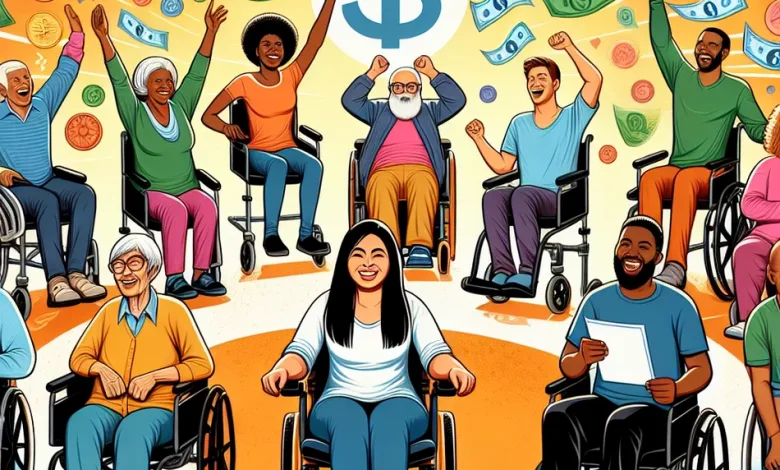
Table of Contents
Empowering Mobility: Understanding Your Options for Power Wheelchair Financial Support
Do you or a loved one need a power wheelchair but are worried about the cost? You’re not alone. Many people face this challenge, but there’s good news: various financial assistance for power wheelchair options are available. In this guide, we’ll explore the ins and outs of power wheelchair financial aid, helping you navigate the sometimes confusing world of funding options for power wheelchairs.
The Rising Need for Power Wheelchairs
Power wheelchairs have become a lifeline for many, offering independence and mobility to those who struggle with manual wheelchairs or have limited mobility. However, the price tag can be daunting. That’s where power wheelchair financial support comes in, bridging the gap between need and affordability.
Government Programs: Your First Stop
When looking into how to get financial aid for power wheelchairs, government programs should be your first consideration. These programs often provide substantial support for those who qualify.
Medicare Coverage for Power Wheelchairs
Medicare coverage for power wheelchairs is crucial for many seniors and individuals with disabilities. Here’s what you need to know:
- Medicare Part B covers power wheelchairs if deemed medically necessary.
- A doctor’s prescription and detailed medical records are required.
- You may need to rent the wheelchair for 13 months before owning it.
Pro tip: Work closely with your healthcare provider to ensure all necessary documentation is in order. For more information, visit the Medicare.gov Wheelchair & Scooter page.
Medicaid Funding for Power Wheelchairs
Medicaid funding for power wheelchairs can be a lifesaver for those with limited income and resources. Unlike Medicare, Medicaid programs vary by state, so checking your local guidelines is essential. Generally:
- Medicaid often covers the total cost of medically necessary power wheelchairs.
- Income and asset limits apply but are typically more generous than other programs.
- Some states offer waiver programs that provide additional flexibility.
To learn more about your state’s Medicaid program, visit the Medicaid.gov website.
Veterans Benefits: Serving Those Who Served
For our veterans, Veterans benefits for power wheelchairs offer comprehensive support. The Department of Veterans Affairs (VA) provides:
- Complete coverage for power wheelchairs for eligible veterans.
- Additional home modification support to accommodate the wheelchair.
- Access to specialized rehab centers for fitting and training.
Remember, even if your disability isn’t service-connected, you may still qualify for assistance. Learn more at the VA Prosthetic and Sensory Aids Service page.
Non-Profit Organizations: A Helping Hand
When government options fall short, non-profit organizations power wheelchair funding can fill the gap. These organizations often focus on specific demographics or conditions. Some notable ones include:
- The ALS Association
- The Multiple Sclerosis Foundation
- The Muscular Dystrophy Association
Pro tip: Look for local or condition-specific organizations in your area for more personalized support.
Crowdfunding: The Power of Community
In recent years, crowdfunding for power wheelchairs has become increasingly popular. Platforms like GoFundMe allow you to share your story and receive support from friends, family, and strangers. While not guaranteed, this method can be surprisingly effective, especially with social media outreach.
Grants: Free Money for Your Mobility Needs
Various grants for power wheelchairs are available from both private and public sources. Some options to explore include:
- The Travis Roy Foundation
- The Wheel to Walk Foundation
- State-specific disability grants
Grant applications often require detailed information and may have specific deadlines, so start your search early.
Insurance Coverage: Maximizing Your Benefits
Understanding your insurance coverage for power wheelchairs is crucial. While Medicare and Medicaid are familiar sources, private insurance can provide significant support. Here’s what to keep in mind:
- Check your policy for durable medical equipment (DME) coverage.
- Some policies may require a co-pay or have annual limits.
- Pre-authorization is often necessary, so don’t skip this step.
Pro tip: Don’t feel free to appeal if your claim is denied. Many denials are overturned upon review. The Patient Advocate Foundation offers resources on appealing insurance decisions.
Finding Affordable Power Wheelchairs: Tips and Tricks
While financial aid is invaluable, reducing costs can make your power wheelchair more attainable. Here are some strategies:
- Compare prices from multiple suppliers.
- Consider refurbished or gently used models.
- Look for end-of-year sales or clearance events.
- Ask about financing options with low or no interest.
Remember, the goal is to find a quality wheelchair that meets your needs without breaking the bank.
Navigating Financial Help for Mobility Devices: Beyond Power Wheelchairs
While our focus is on power wheelchairs, it’s worth noting that similar financial resources for power wheelchair users often apply to other mobility devices. This can include:
- Mobility scooters
- Standing wheelchairs
- Specialized walkers or canes
If a power wheelchair isn’t the right fit, don’t hesitate to explore these alternatives and their associated funding options. The National Council on Aging offers resources on various assistive devices and potential funding sources.
Charities Providing Power Wheelchair Aid: A Closer Look
Several charities providing power wheelchair aid deserve special mention for their dedication to mobility assistance:
- The Wheelchair Foundation Provides wheelchairs to those who can’t afford them worldwide.
- Friends of Disabled Adults and Children (FODAC): Offers refurbished equipment at little to no cost.
- Wheelchair Angels: Connects donors with recipients in need of wheelchairs.
These organizations often work on a case-by-case basis, so reaching out directly is your best bet.
The Road Ahead: Maintaining Your Power Wheelchair
Once you’ve secured financial assistance for power wheelchairs, thinking about long-term maintenance is crucial. Some programs that provide initial funding may also offer support for:
- Regular servicing and maintenance.
- Battery replacements.
- Repairs and part replacements.
Check with your funding source about these ongoing needs to avoid unexpected costs. The United Spinal Association offers resources on wheelchair maintenance and repair.
Empowering Your Journey: Knowledge is Power
Navigating the world of power wheelchair financial aid can feel overwhelming, but remember: knowledge is power. By understanding your options and being persistent, you take crucial steps towards improved mobility and independence.
Pros and Cons of Different Funding Options for Power Wheelchairs
| Pros | Cons |
| Enhanced mobility and independence | High initial cost |
| Access to various funding options | Application process can be lengthy |
| Potential for full coverage through Medicare | Eligibility criteria can be strict |
| Support from non-profit organizations | Availability of funds may be limited |
| Veterans benefits offer comprehensive support | Not all insurance plans cover power wheelchairs |
Contact Information for Assistance
Here’s the contact information for assistance related to power wheelchair financial aid:
- Medicare: Visit medicare.gov or call 1-800-MEDICARE (1-800-633-4227).
- Medicaid: Visit medicaid.gov or contact your state Medicaid office.
- The Muscular Dystrophy Association (MDA): Visit mda.org or call 1-800-572-1717.
- The Christopher & Dana Reeve Foundation: Visit christopherreeve.org or call 1-800-225-0292.
- The United Spinal Association: Visit unitedspinal.org or call 1-800-404-2898.
- The Paralyzed Veterans of America (PVA): Visit pva.org or call 1-800-424-8200.
- The Department of Veterans Affairs (VA): Visit prosthetics.va.gov or call 1-877-222-8387.
- The ALS Association: Visit als.org or call 1-800-782-4747.
- The Multiple Sclerosis Foundation: Visit msfocus.org or call 1-888-MSFOCUS (1-888-673-6287).
These organizations can provide further help and support in securing financial aid for power wheelchairs.
FAQs: Power Wheelchair Financial Aid
Q: What is power wheelchair financial aid?
A: Power wheelchair financial aid includes various forms of financial assistance, such as government programs, non-profit organizations, grants, and insurance coverage, that aim to help individuals afford power wheelchairs.
Q: How can I qualify for financial assistance for a power wheelchair?
A: Qualification criteria vary by program but generally include medical necessity, income level, and sometimes age or veteran status. It’s essential to check the specific requirements of each funding source.
Q: Does Medicare cover power wheelchairs?
A: Yes, Medicare Part B covers power wheelchairs if they are medically necessary. You will need a doctor’s prescription and detailed medical records. Medicare typically covers 80% of the cost once you meet the annual deductible.
Q: What is the difference between Medicare and Medicaid funding for power wheelchairs?
A: Medicare is a federal program primarily for seniors and people with disabilities. It covers a significant portion of the cost if the wheelchair is medically necessary. Medicaid, on the other hand, is state-administered and often covers the full cost for low-income individuals. Medicaid eligibility and coverage can vary significantly by state.
Q: Are any non-profit organizations providing financial support for power wheelchairs?
A: Yes, various non-profit organizations offer financial support, including the ALS Association, the Multiple Sclerosis Foundation, and the Muscular Dystrophy Association. These organizations often target specific conditions or demographics.
Q: How can veterans access financial aid for power wheelchairs?
A: Veterans can access financial aid through the Department of Veterans Affairs (VA). The VA provides complete coverage for power wheelchairs for eligible veterans and may offer additional support for home modifications and specialized training.
Q: What are some alternative funding options if I don’t qualify for government assistance?
A: Alternatives include non-profit organizations, crowdfunding platforms like GoFundMe, grants from various foundations, and private insurance coverage. Additionally, local community groups and state-specific programs should be considered.
Q: Can I use crowdfunding to raise money for a power wheelchair?
A: Yes, crowdfunding has become a popular method for raising funds. Platforms like GoFundMe allow you to share your story and seek financial support from friends, family, and strangers. Promoting your campaign on social media can enhance your reach.
Q: Are there grants available for power wheelchairs?
A: Yes, numerous grants are available from both private and public sources. Examples include The Travis Roy Foundation grants and The Wheel to Walk Foundation. These grants usually require an application process and specific eligibility criteria.
Q: What should I consider when looking for affordable power wheelchairs?
A: Consider comparing prices from multiple suppliers, looking for refurbished or gently used models, checking for end-of-year sales or clearance events, and inquiring about financing options with low or no interest.
Q: How can I maintain my power wheelchair after receiving financial aid?
A: Regular servicing, maintenance, battery replacements, and repairs are crucial for the long-term use of your power wheelchair. Some programs that provide initial funding may also offer ongoing support for these needs. Check with your funding source to understand what is covered.
Q: What should I do if my insurance claim for a power wheelchair is denied?
A: If your insurance claim is denied, feel free to appeal. Many denials are overturned upon review. Resources like the Patient Advocate Foundation can provide guidance on the appeals process.
Q: Are there any specific charities that provide power wheelchair aid?
A: Yes, several charities focus on providing power wheelchair aid, including The Wheelchair Foundation, Friends of Disabled Adults and Children (FODAC), and Wheelchair Angels. These organizations often work on a case-by-case basis, so it is recommended that you reach out directly.
Q: Can I receive financial aid for other mobility devices besides power wheelchairs?
A: Yes, similar financial resources often apply to other mobility devices, such as mobility scooters, standing wheelchairs, and specialized walkers or canes. Organizations like the National Council on Aging provide resources for various assistive devices and potential funding sources.
Remember, the journey to obtaining a power wheelchair might have its challenges, but with persistence and the right information, you can find the financial support for power wheelchairs that you need. Don’t hesitate to reach out to local disability advocacy groups or social workers who can provide personalized guidance on navigating this process. Your mobility and independence are worth the effort!
For additional resources and support, consider reaching out to the National Disability Rights Network or the Christopher & Dana Reeve Foundation, which offer comprehensive information and assistance for individuals with mobility challenges.
